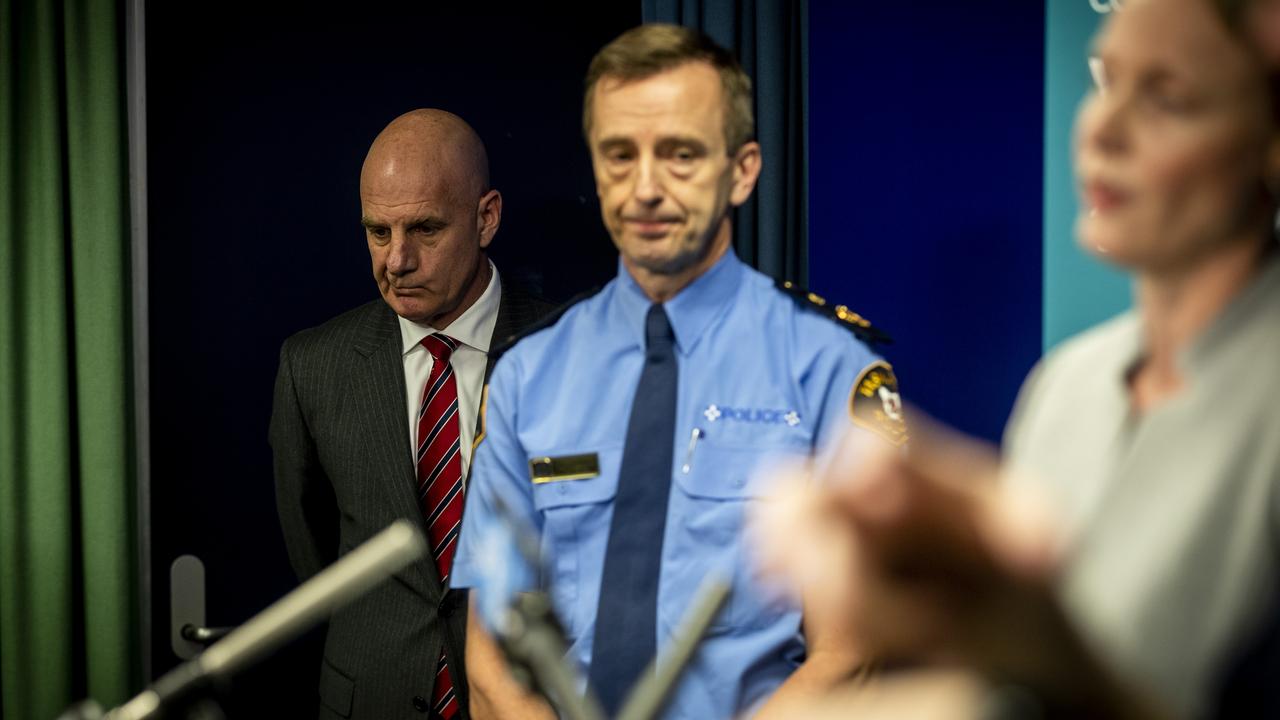Talking Point: Tasmanians need to know where the buck stops
Granting interstate construction workers quarantine exemptions is just one example of the power wielded with no public accountability or sharing of information by the State Controller, writes Meg Webb.

PARLIAMENTARY democracies are not generally in the habit of handing over untrammelled power to non-elected individuals. However, recent events seem to suggest that is precisely what has happened in Tasmania.
The State Controller, Police Commissioner Darren Hine, exercises power and makes key decisions for our state apparently absent of any requirement of public accountability or sharing of information upon which these significant decisions are based.
Look to decisions involving classification of, and quarantine exemptions for, interstate essential workers.

In last month’s reported case of Crowne Plaza construction workers being exempt from quarantine upon arrival and recent concerns raised over lack of clarity over who qualifies as an essential worker, the government has scrambled to assert it is arm’s length from that decision-making, placing it firmly in the jurisdiction of the State Controller. The Premier’s denial of involvement and responsibility begs the question, to whom does the State Controller answer?
The Tasmanian people, via legislation, have given unprecedented powers to the State Controller to manage crises.
In a parliamentary democracy, powers conferred by parliament are accountable to parliament as the ultimate authority. Where is this accountability to parliament?
Let’s run through the scrutiny checklist the government likes to trot out:
While laudable, regular press conferences by the Premier don’t provide the scope of questioning, documentation or access to officials involved in pandemic-related areas of public interest.
Elected representatives seeking answers on their constituents’ behalf could attempt asking questions of government ministers during Question Time when parliament resumes, but we know their response will echo that already given by the Premier that, despite the Westminster tradition of the buck stopping with the minister, it wasn’t them, because they are at arms-length of the process.

We were told the Public Accounts Committee would examine anything pandemic-related, but its mandate is limited to matters pertaining to expenditure of public finances, which as far as we know does not relate to the decision-making processes and decisions of the State Controller, who has not, to date, been called as a witness.
The Subordinate Legislation Committee can consider certain COVID-19 emergency notices issued, but isn’t examining directives from the State Controller or the director of Public Health, through which most constraints on the Tasmanian people are being exercised.
The Opposition has apparently received a briefing from the State Controller on essential workers. That’s all well and good, for them, but private briefings are not a public accountability or scrutiny mechanism.
Despite government assertions of enough scrutiny, the checklist falls short.
The attempt in June to establish a dedicated joint house parliamentary committee to examine the COVID-19 response and recovery would have provided a forum for transparent, publicly accountable scrutiny.
That attempt was defeated narrowly by the government on spurious grounds in the most politically motivated action to date in this COVID-19 emergency, leaving Tasmania with a pandemic-sized hole in accountability processes.

Interstate jurisdictions with COVID-19 parliamentary inquiries into more than economic impacts have all had their chief medical officers appear, as well as their police commissioners where they hold equivalent emergency roles. The Senate response committee has had the Border Force Commissioner, the federal Police Commissioner and Deputy Commissioner appear as witnesses.
To borrow a pet phrase from our premier, let me be very clear:
To ask to whom Tasmania’s State Controller answers is not an attack on Commissioner Hine, who the pandemic has thrust into an unenviable job. While we may personally trust he is doing a good job, at a governance level it’s not appropriate to merely take it on trust; we rightly expect it will be accountably evidenced in the public domain.
The government needs to recognise the application of rigorous accountability oversight is not about trying to catch someone out, but about building trust. It protects responsible officials from the perception of cronyism, abuse of position and accusations of incompetency. Transparency and access to information allows for a more broadly understood decision-making rationale and builds community confidence.

Expert advice from the Premier’s Economic and Social Recovery Advisory Council in its Interim Report alludes to this in recommending the state government provide information and explanation to the community as to how decisions are being made.
Perception can be as important as reality, particularly in times of crisis. As the pandemic-related constraints drag on, people’s circumstances grow tougher and frustrations rise.
It is timely for the Lower House to revisit its motion to establish a joint house committee into Tasmania’s COVID-19 response and recovery when it sits again this month. The Tasmanian people deserve clarity on where the buck stops.
Meg Webb is the independent member for the Legislative Council seat of Nelson.


